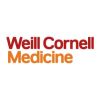Understanding the Differences in Symptoms of Heart Disease in Men and Women
- Overview of Heart Disease in Men and Women
- Common Symptoms of Heart Disease in Men
- Common Symptoms of Heart Disease in Women
- Real-Life Cases: How Heart Disease Affects Men and Women Differently
- What You Can Do: Protecting Your Heart Health
1. Overview of Heart Disease in Men and Women
Heart disease is the leading cause of death worldwide, but many people still don’t fully understand how it affects men and women differently. The symptoms of heart disease can vary significantly between the sexes, which often leads to delayed diagnoses or misinterpretation of warning signs. As someone who has personally researched heart health and spoken to both men and women about their experiences, it’s clear that gender plays a crucial role in how heart disease manifests and is recognized.
For years, heart disease has been perceived as a “man’s disease,” but the reality is that women are just as susceptible to it—though their symptoms may differ. I’ve heard many women share their experiences of feeling dismissed by doctors when reporting unusual symptoms. It’s vital to raise awareness about how heart disease symptoms appear in both genders, so that everyone, regardless of sex, can take proactive steps to protect their heart health.
2. Common Symptoms of Heart Disease in Men
For men, the symptoms of heart disease are often more straightforward and easier to recognize. The classic symptoms, such as chest pain, shortness of breath, and dizziness, tend to be the most common indicators of a heart attack or cardiovascular distress. I remember a friend of mine, Dave, who suddenly experienced chest tightness and severe shortness of breath while exercising. His symptoms were textbook for a heart attack, and thankfully, he sought medical attention immediately.
Some of the most common symptoms of heart disease in men include:
- Chest pain or discomfort: Often described as a feeling of pressure, fullness, or squeezing in the chest.
- Shortness of breath: Difficulty breathing or feeling winded even with minimal physical exertion.
- Arm, back, or neck pain: Pain that radiates from the chest to other areas of the upper body, particularly the left arm.
- Dizziness or lightheadedness: Feeling faint or fainting, which may be a sign of inadequate blood flow to the brain.
While these symptoms are widely recognized and easier to diagnose, many men still overlook them or delay seeking help, believing they’re simply stressed or fatigued. This can result in life-threatening situations. It's crucial for men to recognize these symptoms early and seek medical attention as soon as possible.
3. Common Symptoms of Heart Disease in Women
For women, heart disease symptoms can be much more subtle and often mimic other less serious conditions. Women may not experience the intense chest pain that is commonly associated with heart attacks. Instead, they may experience fatigue, nausea, or back pain, which are easily mistaken for digestive issues, anxiety, or stress. This discrepancy is one reason why heart disease in women is often underdiagnosed or misdiagnosed.
When my cousin Sarah had a heart attack, she initially thought she had indigestion from a heavy meal. It wasn’t until her symptoms worsened—feeling unusually fatigued and lightheaded—that she realized something was wrong. She later learned that these subtle signs were actually warning signals of a heart attack. Here are some common symptoms of heart disease in women:
- Unusual fatigue: Feeling unusually tired or weak, even after minimal activity.
- Shortness of breath: Similar to men, women may experience shortness of breath, but it’s often less intense.
- Nausea or vomiting: These symptoms are more likely to be mistaken for digestive issues.
- Pain in the back, neck, jaw, or stomach: These symptoms may not be immediately linked to heart disease but can signal a heart attack in women.
Because these symptoms are often overlooked or misattributed to other conditions, many women fail to seek help in time. The key takeaway is that heart disease symptoms in women can be very different from those in men, and awareness of these signs can save lives.
4. Real-Life Cases: How Heart Disease Affects Men and Women Differently
Real-life stories of individuals experiencing heart disease provide a valuable perspective on how symptoms vary. Take the case of my friend Tom, a man in his 50s who experienced the classic symptoms of heart disease, including chest pain and shortness of breath. Tom sought immediate medical help and was diagnosed with a blockage in one of his coronary arteries. After undergoing surgery, he made a full recovery. His case highlights how heart disease symptoms in men can often be easily identified.
In contrast, consider the story of Jane, a 45-year-old woman who experienced nausea, extreme fatigue, and jaw pain while at work. She initially ignored these signs, chalking them up to stress. By the time she sought help, it was almost too late. Jane had suffered a heart attack, but fortunately, doctors were able to intervene in time. Her story underscores how heart disease symptoms in women can be much more difficult to identify and often go unnoticed until a serious event occurs.
5. What You Can Do: Protecting Your Heart Health
Whether you're a man or a woman, taking proactive steps to protect your heart health is essential. Recognizing the symptoms of heart disease early and seeking timely medical attention can save lives. Regular check-ups with your healthcare provider, maintaining a healthy diet, managing stress, and staying active are just a few ways you can reduce your risk of heart disease.
If you're concerned about your heart health or want to learn more about preventive measures, consider consulting with a heart specialist. By being aware of the signs and symptoms of heart disease in both men and women, you can take control of your heart health and prevent serious complications down the road.
For personalized advice and expert care, consider seeking help through trusted heart health services, like those offered by specialized cardiology centers. Your heart health is worth investing in, and early detection can make all the difference!




















